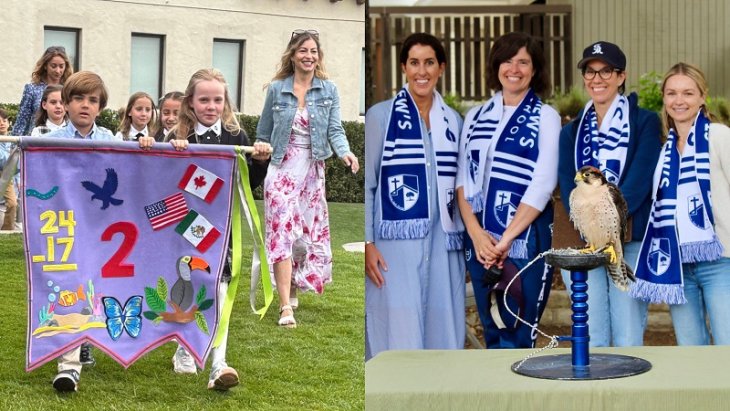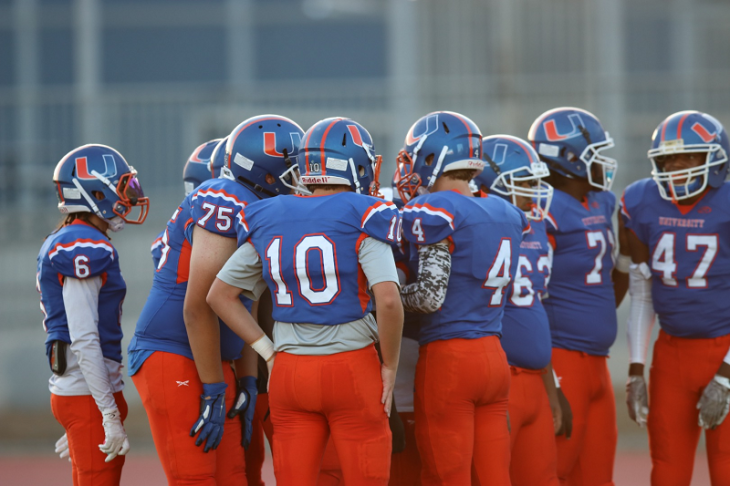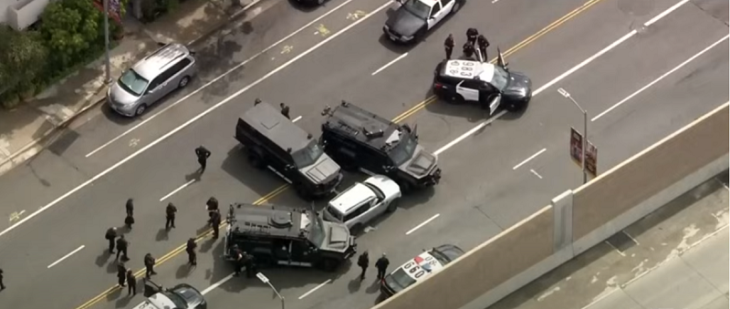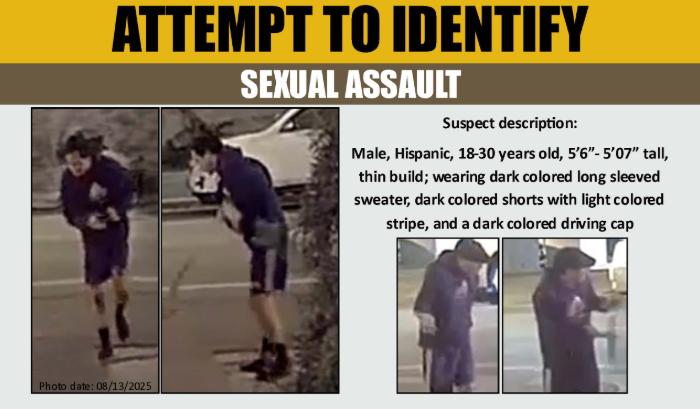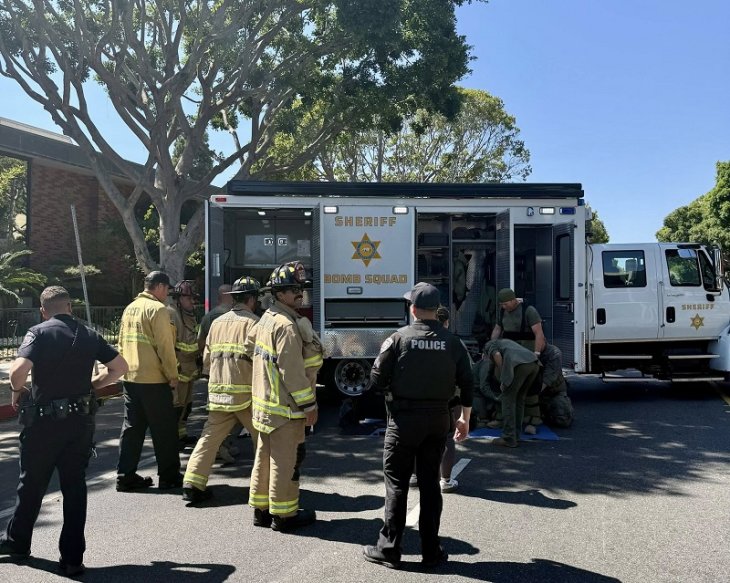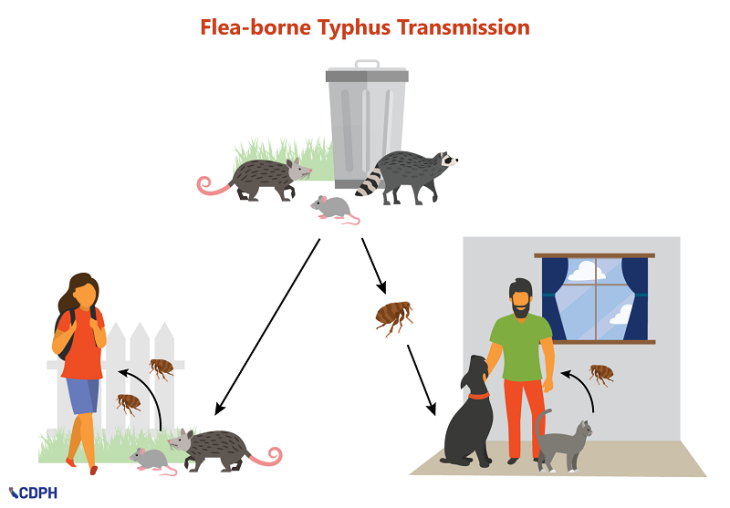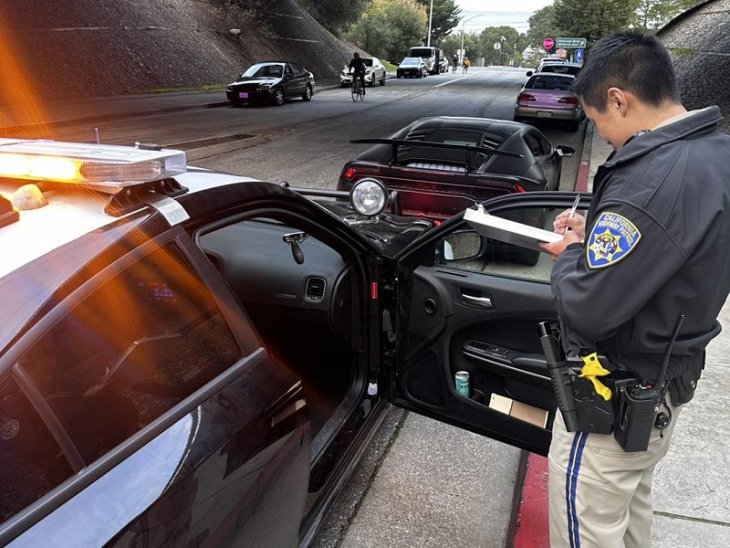
Jury deliberations continued today in the trial of a Los Angeles music copyright infringement case in which the heirs of Motown great Marvin Gaye allege pop hit-makers Pharrell Williams and Robin Thicke plagiarized parts of the 1977 “Got to Give It Up” in the creation of their worldwide hit “Blurred Lines.”
The panel began closed-door discussions Thursday near the end of the trial’s seventh day, following two hours of closing arguments that offered vastly different views of the evidence.
“This is the last place the Gaye family want to be,” attorney Richard Busch, representing the Gayes, told the eight-member civil jury as Williams and Thicke looked on.
“Marvin Gaye left his songs to his children,” he said. “They’re here protecting his legacy.”
The attorney argued that Williams and Thicke “created a song from ‘Got to Give It Up,’ and in doing so copied ‘Got to Give It Up.’ We’re asking justice for the Gaye family. Is there anything wrong with that?”
Opposing lawyer Howard King opened his final argument by telling jurors that his clients prohibited him “from saying anything negative about Marvin Gaye or his legacy.”
King said the lawsuit stems from a “mistake” by the late singer’s ex- wife, Jan Gaye, who compared the feel and ambience of the two recordings rather than the sheet music — which the judge ruled is the central issue in the case.
“Any of us are free to build on ‘Got to Give It Up’ — as long as we don’t copy the notes of ‘Got to Give It Up,”‘ the attorney said. “The Gaye family doesn’t own a genre or a groove.”
At the time the Gaye song was copyrighted in 1977, only written music — not sound recordings — could be registered with the copyright office.
If the jury unanimously finds that it is “probably true” that “Blurred Lines” co-writers Thicke, Williams and rapper Clifford “T.I.” Harris Jr. — and various entertainment companies involved in publishing, marketing and distributing the song — infringed the copyrighted Gaye “deposit copy,” damages must be decided. The result could be worth millions of dollars to heirs Nona and Frankie Gaye.
Thicke testified on the first day of trial last week, and Williams took the stand Wednesday to dispute allegations he knowingly lifted eight key elements of the disco-tinged “Got to Give It Up” when he fashioned “Blurred Lines” over several days at a Burbank studio three years ago.
The federal lawsuit was originally brought two years ago by Thicke, Williams and Harris Jr. as a preemptive strike to protect “Blurred Lines’ from legal claims that it was derived from the decades-old Gaye hit.
The Gaye clan then filed counterclaims alleging that Thicke’s apparent fascination with their late father led to the misappropriation of his work in the creation of “Blurred Lines” and in the title track of Thicke’s 2011 “Love After War” album.
In his testimony, Williams said he has loved Gaye’s music since hearing Motown records around the house growing up.
“The last thing you want to do is take something of someone else’s when you love him,” Williams told the jury. “If I had, I would have dealt with it properly. It’s the fair and right and just thing to do.”
The 11-time Grammy Award winner was adamant that “Blurred Lines” and “Got to Give It Up” were similar only in terms of genre.
“Soul music sounds like soul music,” Williams said, adding that he understood why fans connected the two songs.
“I must’ve been channeling that late ’70s feeling,” Williams said, adding that the Gaye track “did not cross my mind” during the making of the Thicke hit.
The tracks share “feel — not infringement,” he testified.
Gaye’s family is seeking about $40 million in damages, a figure that includes the published earnings of “Blurred Lines” and a share of Thicke’s touring income.
Evidence shows that Thicke and Williams each earned more than $5 million from the success of “Blurred Lines,” while Harris — who got a co-writing credit due to his rap part added late in the recording — made more than $700,000.
The single, which cost nearly $6.9 million to produce and market, has reaped more than $16.5 million in profits since its release two years ago.
Although jurors have seen the “Blurred Lines” video and heard the song, they must consider only the chords, melodies and lyrics of the songs, rather than production elements of the recordings.
Marvin Gaye was shot to death by his father in Los Angeles on April 1, 1984.

